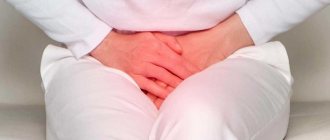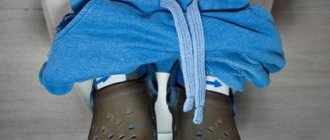Under normal circumstances, a healthy person does not need to be forced to urinate. Instead, the body will naturally tell a person when to urinate. Forced urination should only occur when necessary for a medical specimen.
Some medical conditions can make it difficult to urinate, such as prostate problems or bladder infections. In these circumstances, a person should seek medical help to address the underlying cause of their symptoms rather than trying to force urination.
In most cases, a person can help prevent urinary problems with some preparation, such as drinking plenty of water before an appointment where urine samples are required.
However, there are times when a person must urinate, either through a urine sample or for another reason, and cannot prepare in advance. Below are some methods and techniques to help you induce urination when needed.
Stimulation of urination
You need to sit on a chair and lean forward so that there is pressure on the abdominal muscle. This will put pressure directly on the bladder. You can also apply pressure to the lower abdomen. Lean forward, place your hands there, gently press on a part of the body. Do not touch the bladder itself, otherwise you will provoke the flow of urine to the kidneys.
You can also tap your fingers at the level of the bladder on the abdomen. You need to quickly tap your fingers on your stomach in the area below the navel. This should be done a little faster once per second for about half a minute. If necessary, you should look for the most sensitive area and continue patting until you begin to feel the urge to urinate.
Stimulate the thighs or genital area. Rub your inner thigh or tug on your pubic hair to stimulate the nerves that control your bladder.
Nine Ways to Induce Urination
There are several ways a person can force himself to urinate on demand.
These methods may not work for everyone. In order to find what is best for them, a person may need several methods.
The National Institutes of Health recommends the following methods:
1. Pressing the area between the navel and pubic bone
While sitting on the toilet, a person may touch the area located between the umbilical cord and the pubic bone.
Using their fingertips, a person can gently but firmly touch the skin near the bladder every 30 seconds to stimulate urination.
2. Forward bend
Leaning forward while sitting on the toilet puts extra pressure on the bladder, which can make it easier to urinate.
3. Placing your hand in warm water
Placing your hand in warm water may make you want to urinate. A person should do this while sitting on the toilet.
If the toilet is within reach of a sink or bathtub, a person can let warm water run from the faucet to their hand.
4. Starting water
The sound of water may trigger the need to urinate. A person who has trouble urinating may want to turn on the bathroom sink before attempting to urinate or flush the toilet before using it.
Some people believe that playing recordings of running water can also have the same effect.
5. Drinking while trying to urinate
Drinking water or other low-sugar liquid while trying to urinate can also cause the body to urinate.
People may need to drink a few sips before attempting to urinate to get this technique to work.
Caffeinated drinks or alcohol are not recommended as they can make a person more dehydrated.
6. Attempted Valsalva maneuver
The Valsalva maneuver involves pushing as if trying to cause a bowel movement. A person may find that using their forearm to push their lower abdomen also helps.
People should avoid pressing directly on the bladder, as this can push urine into the kidneys and can cause an infection.
7. Implementation
Simple exercises such as walking or jumping jacks can help a person urinate.
Before heading to the bathroom, a person may want to do a few laps at home or office to stimulate urination.
8. Inner thigh massage
Rubbing your inner thigh while on the toilet can help trigger the need to urinate. The person should gently massage the inside of the leg with their hands or fingers.
9. Using relaxation techniques
If a person is nervous or self-conscious about not being able to urinate, they can try some basic relaxation techniques to encourage urination.
By closing the eyes, a person can focus on relaxing the muscles, starting with the fingers and hands and working through all parts of the body. The goal is to relax the bladder and stimulate urination.
More water
So how do you make yourself pee? If your doctor has prescribed a urine test for you, you should drink water the day before. Perhaps this is the simplest, harmless method. Before forcing yourself to pee this way, pay attention to the following factors:
- Water will not harm the body, because it simply removes excess fluid through the kidneys. If you don't know how to make yourself pee, start by drinking a couple of glasses of water before visiting the clinic.
- If you have heart failure or other conditions that cause swelling, you should limit your fluid intake. You should also reduce your water intake if you have chronic kidney disease or are undergoing hemodialysis.
Takeaway
Trouble urinating on demand is not uncommon when visiting a doctor.
People can prepare for a urine test or other medical procedure by drinking more water and not urinating right away before seeing a doctor. If this is not possible, they may use one or more of the methods above to help induce urination.
Finally, if a person is having trouble urinating outside of a medical examination, they should seek medical attention for a proper diagnosis. An untreated infection can have serious consequences, so it is extremely important to see a doctor as soon as possible.
Eating fruits
We continue to look at how to force yourself to pee for tests. Certain fruits have diuretic properties. A diuretic is a substance that promotes urine production and causes you to urinate more frequently. There are many fruits that are natural diuretics. Therefore, if you are wondering how to make a child or yourself pee, you should eat the following fruits before taking tests:
- Citrus fruits promote urination. If consumed regularly, such products also reduce blood pressure and prevent infection from entering the organs related to the urinary system.
- Watermelons. After eating a couple of slices of juicy and sweet watermelon, you will probably soon want to pee.
- Some products are made with fruit, such as cranberry juice or apple cider vinegar. The day before your test, drink a glass of juice or eat a salad dressed with apple cider vinegar.
Water and pressure
How to quickly want to write for analysis?
The easiest and most harmless way is to drink a glass of water, you can try washing your hands under the tap. The sound of running water stimulates urination. How to quickly want to pee? Light pressure on the bladder area may also help. If urine is collected at home, then you can take a warm bath, where the pelvic muscles relax, and the desire to urinate arises. Eating fruits and vegetables the night before a test can increase the amount of urine produced. If it is supposed to be collected during the day, then food intake can be increased up to 5-6 times, giving preference to liquid vegetable soups, herbs, citrus fruits, fresh cucumbers, cabbage, carrots, apples. In summer, watermelon and melon are available, increasing the frequency of urine outflow. Garlic and lemon have a mild diuretic effect.
Application of herbs
How to make a child or yourself pee for tests? Some herbs also promote urinary flow. They can be drunk as a natural diuretic. These include:
- The antioxidants contained in parsley improve urination in humans.
- Cilantro has a diuretic effect, and also reduces blood pressure and normalizes digestion in humans.
- Garlic has many properties that are beneficial for health. It boosts immunity and can also serve as a natural diuretic.
- Ginger will prevent fluid accumulation in the human body. If you want to stimulate urination, use ginger as a seasoning by adding it to various dishes.
Vegetables
Please note: if you are looking for an answer to the question of how to make a baby pee, then it is better to use the massage methods described above for these purposes. Vegetables can be consumed by adults and older children. These include the following:
- Cucumbers and celery contain a large amount of liquid, which is necessary for urination.
- Carrots serve as a light, good snack, and they also have diuretic properties. To avoid any problems with urination, before taking the test, eat one raw carrot or a jar of carrot baby puree, which is sold in grocery stores.
- Cabbage, like the aforementioned cucumbers, contains a lot of liquid, which promotes urination.
What is the connection between experiences and urination?
How can you want to write to your child before exams in a public restroom of an educational institution? Mom can tell you the answer to the question. Psychological help or good advice can help relieve tension and nervousness that prevents you from emptying your bladder. A sweet bar or fruit juice will smooth out feelings and relax muscle tension.
Any distracting actions from nervous concentration on the result contribute to a calm process of urination. Holding your breath, massaging the earlobes, rubbing the palms of your hands, rolling the soles of your feet from heel to toe and back have a relaxing effect, diverting attention from the problem.
Drinking tea or coffee
How to make a child pee in a jar? You can give him some weak tea to drink. Adults can use coffee for these purposes.
The fact is that these drinks have a diuretic effect. So, shortly before taking the tests, drink a small cup of black or green tea or black coffee. But it is necessary to observe moderation, that is, not to consume too much caffeine, in particular, before an upcoming visit to the doctor. A large dose of this substance can provoke a temporary increase in blood pressure in a person, which will be reflected in the readings of the pressure gauge in a specialist’s office.
Eliminate constipation
How to force yourself to pee if you don’t want to because of existing constipation?
If you suffer from constipation, this can put pressure directly on the bladder as well as on the urethra, preventing urination. Add foods that contain large amounts of fiber to your diet. You also need to do more physical exercise. But if the problem does not go away, then consult a doctor.
Try not to resist the urge to defecate, as this can only make constipation worse.
How to overcome the fear of urinating in public?
How can you force a boy or girl to pee for testing if the child is simply afraid to do it in a public place?
First of all, you need to practice progressive muscle relaxation. Many children have trouble urinating in public. If you, too, are afraid of urinating in the clinic, then relaxation will help. You should try to calm down before peeing in a public toilet.
Find a way to help you or your child distract from the obsession with urination. This way, your body will easily perform its natural function. The progressive muscle relaxation technique will help with this.
Alternately relax different muscle groups. You should start by relaxing your neck and shoulders, then move on to the muscles of your arms, hips, and torso. Gradually work your way down, reaching your shins and feet. Try to focus on the sensations in your muscles, while forgetting that you are currently about to use a public toilet. By relaxing your muscles and eliminating all anxious thoughts from your head, you can easily urinate in the clinic.
Find a way to distract your child or yourself from various disturbing thoughts. Try to occupy your own or your child's mind with something else without thinking about urination. This way you will make the whole process much easier. When planning to use a public restroom, take your mind off the topic.
If you have a smartphone with you, then read the news, let your child watch cartoons, listen to music. So, you can easily get distracted or distract your child.
Try to think of something else. Imagine a sporting event in your mind, try to remember your favorite musical melody or poem. You can also imagine a beautiful landscape, bring to mind a soothing picture, for example, the interior of a children's bedroom. You can also hum a song you like in your thoughts. In a word, anything that will help you distract yourself and not think about the need to use a public toilet will do.
When to see a doctor
People should seek medical help if they have trouble urinating several times a day. An inability to urinate may be a sign of underlying conditions that require treatment, such as a urinary tract infection or prostate problem.
A person who has difficulty urinating when asked to undergo a urine test probably does not have an underlying health condition. They may have recently urinated or may be nervous. In these cases, the person can usually induce urination using the methods listed above.
See a therapist for help
If the need to use a public toilet causes you anxiety very often, and also leads to various kinds of inconvenience at work or in other places, then you can seek professional help from a psychotherapist.
The fear of defecating in public toilets has been successfully treated with medications, behavioral psychotherapy and hypnotherapy. The psychotherapist must study your case, after which, based on your condition and medical history, he will select the most appropriate treatment method.
To do this, you can go to any paid clinic or look in your vicinity for a free or less expensive psychological assistance center. If you are studying at a large educational institution, it is worth keeping in mind that such centers often operate there.
How to force yourself to go to the toilet when you're short on time
Regardless of your needs, there are a few things you can do to force yourself to go to the toilet when you're short on time.
Quick help Warm liquids act as a vasodilator: they dilate blood vessels, increasing blood flow. Therefore, drinking whatever warm liquid you prefer can help speed up the movement. But don't drink coffee.
Physical activity is another way to stimulate the elimination process. Try walking or jogging up and down stairs.
Some people find that gently massaging the perineum (the space between the genitals and anus) can help relax the muscles and make bowel movements easier. The study showed promising results for a technique called self-acupressure. The study participants had chronic constipation, but it appears it would be beneficial for those who simply need to speed up the process, as the study found that acupressure "relaxed the muscles and stimulated the nerves responsible for bowel movements." The doctor noted that the participants were trained in this technique, so it is best to consult a doctor or acupressure specialist
Long-Term Solutions When this situation is a daily problem, there are a couple of particularly good tips. First, wake up earlier and start your day right away with warm fluids and light activity. Then there should be breakfast. Skipping breakfast is unhealthy and eating can give your gut a boost. Give yourself more time in the morning.
What to Avoid Taking a glycerin suppository often helps people, but it is not a good idea if you are in a hurry. A glycerin suppository may work immediately or may not work for several hours, so it may backfire if you are trying to force your bowels to work at a certain time
Laxatives are also somewhat unpredictable and generally not good for your health. You may become dependent on certain laxatives.
Try not to hold up your bowel movements. Some people hate using public toilets, but avoiding them can make constipation worse.
Based on materials from - positivemed.com Translation and adaptation - Fithacker
Shall we turn on some music to set the mood?
Now playing:
Open Kluber FM website | iOS app | Android app
Final part
If you are unable to pee at all in a public restroom for testing, you should seek emergency medical attention. The specialist must insert a catheter, which will relieve you of excess fluid in the bladder. Next, you need to take tests that will help find out the main cause of the problem, and, of course, determine the course of treatment.
wikiHow works like a wiki, which means that many of our articles are written by multiple authors. This article was produced by 17 people, including anonymously, to edit and improve it.
Number of sources used in this article: 32. You will find a list of them at the bottom of the page.
If you need to take a urine test, have a fear of urinating in public, or simply have trouble emptying your bladder, you may need to force yourself to pee. If you are afraid of urinating in public, certain foods that stimulate urination and psychological help can help. However, under certain circumstances that involve bladder pain, you may need professional medical help.
A person who asks a question on a medical forum about why urine is not flowing and what to do should certainly receive an answer from a qualified urologist after a comprehensive medical examination. There are quite a few reasons why you want to go to the toilet, but no urine comes out. Being informed in this direction means having every chance to prevent dangerous pathologies.
Acute urinary retention is a condition of the human body when urine cannot pass from a full bladder on its own due to an existing obstruction. Partial urinary retention is also a painful condition when the bladder does not empty completely, although the urge to urinate may come one after another.
Other tips
How can you quickly want to write if the need arises? It is useful to drink water in small sips before eating; the total amount should be at least 2 liters per day for an adult, not counting juices and soups. Stagnation of urine leads to narrowing of the excretory channels, inflammatory processes in the kidneys, retention of uric acid sediment in the form of sand and the formation of stones. Beer is a diuretic product, but in some cases its use is unacceptable.
If you need to pee in a public toilet, and urinating in public makes a person confused, then psychological work on obsessive thoughts and small physical exercises to help relax are necessary. You will have to work on tensing and relaxing muscle groups one by one, switching your attention to breathing and sensations.
How can you want to write while using medications if there is swelling of the tissues or increased blood pressure? If there are no problems with the kidneys or bladder, then along with diuretics you can take antihistamines to help remove fluid from the body. Sedative or vasodilating mixtures, tinctures of medicinal herbs help in relaxing muscle tissue and draining accumulated water through the excretory system. If you have low blood pressure, you can take caffeine tablets.
How does this happen
Before an attack of acute urinary retention, mild pain, sluggish stream, weak urination, and other symptoms are noted, depending on the cause of the painful condition. Initially, during an attack of acute urinary retention, there is a urge to urinate, during which urine does not flow or is released in minute quantities. In this case, the patient experiences pain in the lower abdomen, which intensifies with movement and urination.
Acute urinary retention in women is often accompanied by discharge from the vagina, in men - from the urethra. Sometimes pain in the head area, increased blood pressure, vomiting, chills, and fever are observed. While examining the patient, the doctor discovers a full bladder. Sometimes you can observe a spherical protrusion in the lower abdomen, pressure on which causes pain.
Reasons for urinating
The human nervous system is usually responsible for signaling when the bladder is full and needs to be emptied. There is often a feeling of fullness and pressure.
In most cases, a person can rely on these natural signals to know when urination should occur. However, there are times when urination must be done on demand, often for medical procedures.
Some of the most common reasons why a person may need to pee on demand to take a medical test include:
- drug testing
- radiological or ultrasound examinations
- urine test, urinalysis, urinalysis and blood test.
- cystoscopy, in which a thin tube with a camera examines the bladder and urethra.
- urodynamic studies, which evaluate how well the body stores and releases urine.
Examples of urodynamic studies include uroflowmetry, cystometrogram (CMG), urethral pressure profiling, and electromyography.
After surgery, a person may develop a condition called neurogenic bladder. This is when the nerves no longer tell the brain when it is time to urinate.
A neurogenic bladder can cause a person to either hold urine for too long or have difficulty urinating because they cannot sense when their bladder is full.
Causes
Medical statistics show that, with the exception of isolated cases, acute urinary retention is diagnosed in men. This situation is explained by the structural features of the urinary system: the presence of a prostate, which is often affected by a tumor, urethral strictures resulting from inflammatory processes.
Why is urine retained in men?
The main reasons for urine retention in men are:
- Prostate tumor.
- Malignant growth of the genitourinary system.
- Previous venereal diseases.
- Acute and chronic prostatitis.
- Urethral rupture.
- Urethral stones.
Why women don't urinate
Women retain urine much less frequently due to the shorter structure of the urethra and the absence of a prostate. Urine retention in women of the weaker half occurs for the following reasons:
- Neurological pathologies.
- Injured spine.
- Previous operations on the uterus.
- Malignant neoplasms.
- Urethral cysts.
- Urolithiasis disease.
The use of alcohol or drugs may accelerate urine retention if there is a predisposing factor. Older people may experience complete urine retention after treatment with atropine-type drugs.
Reasons to induce urination
The human nervous system is usually responsible for signaling when the bladder is full and should be emptied. The sensation is often fullness and pressure.
In most cases, a person can rely on these natural signals to know when urination should occur. However, there are times when urination must occur on demand, often for medical procedures.
Some of the most common reasons why a person may request a medical examination include:
- drug testing
- X-ray or ultrasound examinations
- urinalysis, urine culture and blood tests
- cystoscopy, where a thin tube with a camera examines the bladder and urethra
- urodynamic studies, which evaluate how well the body stores and releases urine
Examples of urodynamic studies include uroflowmetry, cystometrogram (CMG), urethral pressure profiling, and electromyography.
After surgery, a person may develop a condition called neurogenic bladder. This is when the nerves no longer tell the brain when it is time to urinate.
Neurogenic bladder can cause a person to either hold urine for too long or have difficulty urinating because they cannot feel when their bladder is full.
What do we have to do
Ishuria is a very dangerous phenomenon that requires immediate medical attention. Self-treatment at home can have very negative results. An attempt at catheterization is dangerous due to bladder rupture, urethral injury, and there is a high probability of infection, which leads to the development of an acute form of pyelonephritis and prostatitis.
The right way out in this situation is to call an ambulance. Relief of the condition for a short time can be achieved by applying heat to the perineal area or immersing yourself in a warm bath; it is recommended to take antispasmodics. To provide medical care, it is important to find out the causes of urinary retention. This will make it possible to correctly determine treatment methods.
Help at home
With ischuria, you can alleviate the patient’s condition in the following ways. Fold, wet, and wring out the sheet. Place it under your back and let it sit for 1 hour. After this, apply the same compress to the stomach. On the first day, apply in the morning and evening, on subsequent days - 1 time, when signs of emerging ischuria appear. Grate 2 onions, use gauze to apply a compress to the bladder area, leave for 2 hours.
Treatment
For the treatment of ischuria the following is used:
- Antimicrobial drugs: Furagin, Levomycetin. These same medications are used to prevent complications during catheterization.
- The bladder is washed with antiseptics.
- During cytoscomy, a tube is inserted through the abdominal wall to remove urine.
When ischuria occurs due to surgery or childbirth, it is recommended to periodically moisten the genitals with warm water. Novocaine is also injected into the urethra, and methenamine is infused intravenously.
Herbal treatment
Herbalists advise people with problems with the urinary system to keep diuretic plants at home: currant leaves, birch buds, dill seeds, horsetail, chicory, parsley.
Proven recipes for urinary retention:
- Recipe 1. Celery juice. Juice is squeezed out of celery roots twisted using a meat grinder. Take 1 tablespoon 3 times a day for 15 minutes for 15 days. before eating. You can use an infusion: 100 g of crushed root is poured into 300 ml of cold water. Leave for 7 hours, then take in the same way as juice.
- Recipe 2. Infusion of parsley. Take 100 g of washed parsley, pour boiling water over it, place it in a saucepan, pour milk on top, which should be heated in the oven. After straining for 2 days, take a teaspoon every 2 hours.
- Recipe 3. Infusion of currant leaves. The medicine is prepared according to the same recipe as the parsley infusion. In addition to the diuretic effect, you can achieve strengthening the immune system by taking the infusion.
- Proven diuretics include burdock root and juniper berries. A pharmaceutical collection of juniper is used. Take in large quantities.
- Honey decoction. Take 30 g of crushed birch leaves, pour 500 ml of dry wine, boil over low heat for 15 minutes, after which 5 teaspoons of honey are added, everything is mixed. The broth is stored in the refrigerator, take 2 tablespoons after meals.
Complications
Chronic diseases leading to ischuria are often fraught with serious complications, especially for older people. Dangerous diseases that occur with urinary retention are:
- Shrinkage of the bladder.
- Rupture of the bladder wall.
- Inflammation of the urinary tract.
- Kidney failure.
- Urolithiasis disease.
- Hydronephrosis.
- Cystitis.
- Pyelonephritis.
- Diverticulum in the walls of the bladder.
- Urosepsis.
- Bladder atrophy.
Prevention
To avoid pathology of the urinary system, the following recommendations must be followed. Avoid injury to the genitourinary system. Avoid hypothermia. When treating with drugs prescribed by a specialist, it is necessary to adhere to the norms and duration of medication use.
Timely identify and treat pathologies leading to acute urine retention. Regularly undergo preventive examinations in medical institutions. With ischuria, the prognosis is positive, but it should be borne in mind that there is a high probability of complications from organs that lead to urinary retention.










